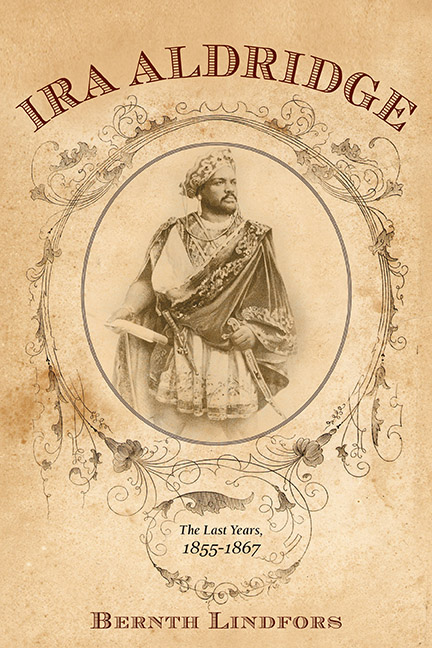Book contents
- Frontmatter
- Contents
- List of Illustrations
- Acknowledgments
- Abbreviations
- Introduction
- 1 Readjusting to Britain
- 2 Crim. Con.
- 3 On the Road Again
- 4 Stockholm
- 5 The Second Continental Tour
- 6 Pest and Buda
- 7 A Short Break
- 8 The Third Continental Tour
- 9 Home Again
- 10 The Fourth Continental Tour
- 11 The Fifth Continental Tour
- 12 The Sixth Continental Tour
- 13 Taking a Break
- 14 The Seventh Continental Tour
- 15 Another Break
- 16 The Eighth Continental Tour
- 17 The Ninth Continental Tour
- 18 Final Acts
- 19 Postmortem
- Notes
- Selected Bibliography
- Index
11 - The Fifth Continental Tour
Published online by Cambridge University Press: 26 May 2021
- Frontmatter
- Contents
- List of Illustrations
- Acknowledgments
- Abbreviations
- Introduction
- 1 Readjusting to Britain
- 2 Crim. Con.
- 3 On the Road Again
- 4 Stockholm
- 5 The Second Continental Tour
- 6 Pest and Buda
- 7 A Short Break
- 8 The Third Continental Tour
- 9 Home Again
- 10 The Fourth Continental Tour
- 11 The Fifth Continental Tour
- 12 The Sixth Continental Tour
- 13 Taking a Break
- 14 The Seventh Continental Tour
- 15 Another Break
- 16 The Eighth Continental Tour
- 17 The Ninth Continental Tour
- 18 Final Acts
- 19 Postmortem
- Notes
- Selected Bibliography
- Index
Summary
According to newspaper reports, Aldridge intended to begin his new tour in St. Petersburg in May 1862, while the American Civil War was raging. He evidently went there in the expectation or hope of securing an engagement, but he was prevented from performing anywhere in the city. Perhaps the public controversy over his dismissal from the St. Petersburg stage in January 1859 was partly the reason he was now being denied an opportunity to appear again. Since V. F. Adlerberg, the official who had dismissed him, was still the minister of the imperial court who controlled administration of the city's theaters, he alone could have barred Aldridge's reengagement.
However, there may have been a deeper political reason for authorities in St. Petersburg to ban Aldridge in 1862 and later in 1864 and 1867 as well. Aldridge had originally arrived in St. Petersburg when Tsar Alexander II was proposing emancipation of the serfs and other social reforms. By March 1861 legislation had been passed granting personal freedom to 10 million male peasants and their families, but this measure drew discontent and opposition from landed gentry in the years that followed. Aldridge, given his background, was immediately perceived as a symbol of the liberation struggle. As K. I. Zvantsov remarked on first seeing him perform as Othello in St. Petersburg in 1858,
In our contemporary history there is an event which creates a whole new sphere of life and thought, namely the liberation of the Negroes in North America; this becomes something internal, not only for the enslaved people, but for all of us. That is why for us, at this particular time, the role of Othello performed by this artist of genius, with all its subtleties of tribal and climatic character, has a great universal meaning… . From Othello is torn the deep cry, “Oh misery! misery! misery!” … and in that misery of the African artist is heard the faroff groans of his own people, oppressed by unbelievable slavery, and more than that—the groans of the whole of suffering humanity.
Also, Aldridge's close relationship with Taras Shevchenko, a serf who was a strong advocate for social change, reinforced the perception of him as a revolutionary figure and certainly contributed to the backlash against him by opponents of reform in later years.
- Type
- Chapter
- Information
- Ira AldridgeThe Last Years, 1855-1867, pp. 169 - 188Publisher: Boydell & BrewerPrint publication year: 2015



